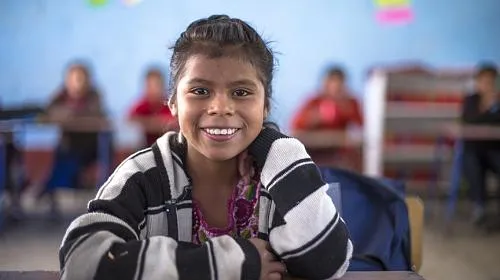CARE USA, the FGM Network, Save the Children, the World Bank, AGE Africa and World Vision USA join members of Congress to discuss the challenges and opportunities for gender equality worldwide
WASHINGTON (Oct. 10, 2017) – CARE, as co-chair of the Girls Not Brides USA coalition, welcomes today’s event, Overcoming Challenges, Empowering Girls, hosted in cooperation with the FGM Network and the House Foreign Affairs Committee. This event will feature a panel discussion on the challenges faced by adolescent girls globally, including child marriage, female genital mutilation/cutting and poor access to quality education. The panel and the reception to follow will include remarks from several members of Congress, both Republican and Democrat, focusing on bipartisan measures to overcome these challenges through U.S. foreign policy.
Michelle Nunn, president and CEO of CARE, will moderate a panel that will include Save the Children girl champion, Maryam Ahmed; lead economist for the World Bank’s Education Global Practice, Quentin Wodon; AGE Africa’s Board member and former Executive Director, Aubryn Sidle; and World Vision USA’s senior gender advisor, Yeva Avakyan. Congressional remarks will be delivered by House Foreign Affairs Committee Chairman Ed Royce (R-CA-39) and Rep. Betty McCollum (D-MN-4).
“In too many corners of the world, women and girls are denied the opportunity to go to school, to participate in the economy, to be represented in government, or to enjoy basic protections under the law,” said Chairman Royce. “No state can expect progress when half its population is repressed. When women and girls are empowered, their families, communities and countries do better. That is why the inclusion – and empowerment – of women and girls must remain a top U.S. foreign policy priority.”
Every year, 15 million girls are married before the age of 18, which translates to 28 girls every minute. This practice has affected over 700 million women and girls worldwide. Furthermore, nearly two-thirds of illiterate adults are women, due in large part to harmful gender norms that keep girls from accessing education or other opportunities to develop skills. And at least 200 million girls and women living today across 30 countries have undergone female genital mutilation/cutting, a practice that is deeply ingrained in certain social settings but has a range of deleterious effects in the lives of women and girls.
Recently, the 115th Congress has advanced measures to tackle barriers to girls’ education and promote women’s inclusion in conflict resolution overseas. Multiple administrations have promoted women’s education and economic inclusion, and successive Congresses have championed legislation to prevent child marriage, as well as improve property rights for female farmers and combat human trafficking.
“Girls around the world deserve the same rights and opportunities that boys do,” said Rep. McCollum. “They are integral to our global community’s peace, security and economic growth. The U.S. government’s foreign assistance can be a global force for good in this regard. It is our role to remove barriers keeping girls out of school, including child marriage, unequal access to school resources and programs, and the expectation that tasks at home far outweigh a good education. It’s about striking a balance, but we need to change the way we look at education for girls and make sure the playing field is level.”
“If you want to talk about the bottom line – economically, politically, and in terms of security – talk about women and girls,” said Michelle Nunn, president and CEO of CARE. “The women and girls I’ve met around the world demonstrate every day that investments in education, legal protections and access to opportunities change not only their futures, but entire communities and future generations. When the U.S invests smartly in women and girl’s empowerment, we pave the way for equality, growth, and prosperity.”
The Overcoming Challenges, Empowering Girls panel discussion is scheduled today from 3:30-5:00pm at the Rayburn House Office Building, room 2172. A reception will follow from 5:00-7:00pm in the Rayburn Foyer.
About CARE:
Founded in 1945, CARE is a leading humanitarian organization fighting global poverty. CARE places special focus on working alongside poor girls and women because, equipped with the proper resources, they have the power to lift whole families and entire communities out of poverty. Last year, CARE worked in 94 countries and reached more than 80 million people around the world. To learn more, please visit www.care.org.
Media Contact:
Nicole Ellis, +1-202-595-2828, nicole.ellis@care.org

